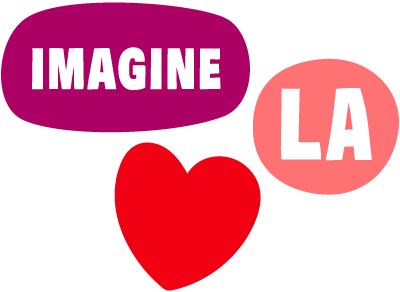Imagine Hope - Nov 2020
On Gratitude and Giving
Imagine Hope is a one-year blogging project being undertaken by Caitlin Newby as she engages with Imagine LA at the deepest levels and shares her experiences and reflections.
November marks the beginning of the holiday season, a time that for many people is filled with expectations of warmth and good cheer. For many, however, that joy can be overshadowed by stress, anxiety, and worry. From financial worries to separation from loved ones—two concerns that are surely on the forefront of so many people’s minds this year more than most—the stresses of the holiday season can make it something to get through rather than savor and enjoy.
Fortunately, there is one aspect of the Thanksgiving season that can lift the spirits, and it is built right into the holiday: expressing gratitude. It is a practice that many researchers have found is associated with feelings of greater happiness. By recognizing the goodness in our lives and acknowledging that the source of that goodness lies at least partially outside ourselves, we “feel more positive emotions, relish good experiences, improve [our] health, deal with adversity, and build strong relationships,” according to researchers at Harvard. [1]
This idea of gratitude connecting us to something beyond or larger than ourselves in particular intrigued me. I wondered if there was some connection, whether practically or emotionally, between giving thanks and giving back.
Studies have found that gratitude is a key ingredient in the social rules of reciprocity, “which essentially means that feeling grateful helps people ‘give back’ what they have received.” [2] It is also seen as a “moral reinforcer,” meaning that we see a “thanks” from others as a reward that will lead us to give more in the future. [3]
From personal experience, I certainly have experienced both positive emotions and strong relationships from donating my time and resources to charitable causes. My time so far volunteering with Imagine LA, for example, has been extremely rewarding. I have felt happier, more connected, and more grateful for the things and people that I have in my life. Seeing my mentee blossom and open up to me over these past months as we play together and she shares her drawings and classwork with me has been such a joyful experience.
Gratitude inspires and is reinforced by the act of giving. It takes us beyond our selves, gives us the perspective with which to see the things we have to be happy about, and motivates us to give back to others. So, as we approach this holiday season, remember that gratitude is good, not only for ourselves, but for others. Give thanks and give back!
###
[1] “Giving thanks can make you happier,” Harvard Health Publishing, Harvard Medical School, www.health.harvard.edu/healthbeat/giving-thanks-can-make-you-happier.
[2] The Bronfenbrenner Center for Translational Research, “What We Know About Gratitude and Giving Back,” Psychology Today, 27 June 2017, www.psychologytoday.com/us/blog/evidence-based-living/201706/what-we-know-about-gratitude-and-giving-back.
[3] Christina Karns, “Why a Grateful Brain Is a Giving One,” Greater Good Magazine, The Greater Good Science Center at the University of California, Berkeley, 19 December 2017, www.greatergood.berkeley.edu/article/item/why_a_grateful_brain_is_a_giving_one.

